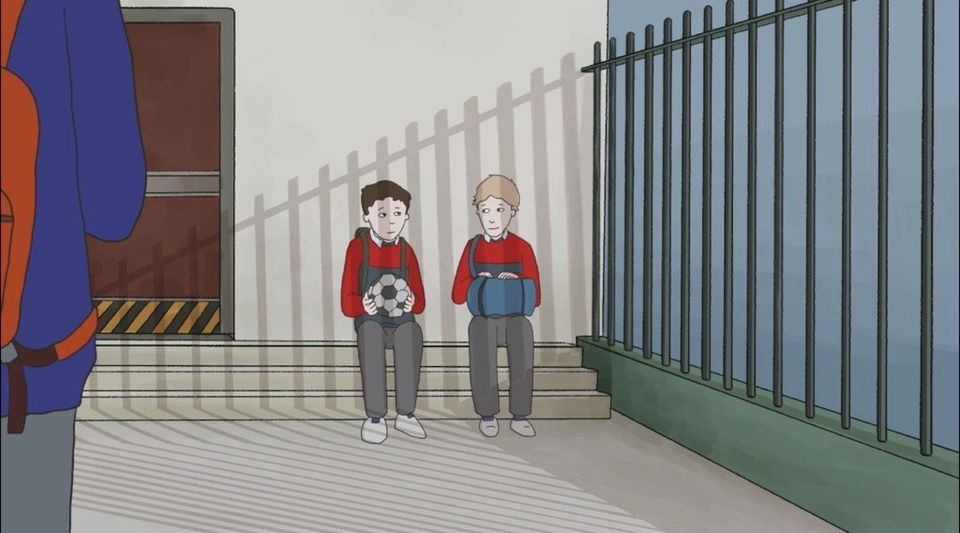New animated short film exposes reality of child trafficking and forced criminality in Dublin
The Runners – A Trafficking Timeline, was created by the Inner City Organisations Network (ICON), which partnered with MECPATHS, an organisation specialising in raising awareness around child trafficking.
Belinda Nugent, project leader of the community development programme at ICON, said: “We had a forum, and we brought the community together to discuss housing, health, and what’s working.
“One of the huge issues that came up was the grooming of children to become involved in criminal activity.
“We brought in Detective Superintendent Derek Maguire from the garda’s Human Trafficking Investigation and Co-ordination Unit, and started receiving training to identify what this type of exploitation is and how we can do something about it.
“We started speaking to youth clubs and family support groups, and held focus groups to share stories of their children experiencing this.
“We were able to create the animation as a way to start raising awareness of what’s happening,” she added.
The film, created by Sadhbh Lawlor, portrays the story of Reece, a young boy who is exploited by a criminal gang.
The short film follows a character called Reece who is forced into criminality by gangs
The film follows Reece’s descent into crime, despite his parents’ efforts to protect him, and the escalating threats the family faces from the gang.
The film is based on interviews and surveys with young people, parents and community workers within Dublin’s north inner city.
“What we’re seeing is that children, as young as 8 or 10 years old, are coming home and starting to act disrespectfully towards their parents,” Ms Nugent said.
“Parents notice things like their children having money in their pockets or buying things like clothes or food, and they would ask, ‘Where are you getting this money from?’
“At that point, the parents didn’t recognise that their child was being groomed, but it was clear something was happening.
“The drug dealers or traffickers would start giving these young people small packages to carry, and it didn’t stop there.
“They were asked to hold the packages at home or bury them, and then the dealers would come and pick them up without the victim knowing.
“Eventually, the dealers would call them and say, ‘Go get the package and bring it to me’. But when the young people went to look for the package, it wasn’t there.
“This is when it starts escalating, and the kids are getting further involved. This is where the debt bondage comes into play.
“The kids are forced into criminality because they owe a drug debt to the person who has been exploiting them. It becomes a vicious cycle where they’re trapped.
“Some families are in a situation where they’re coming to us, saying, ‘Please help us. I owe €4,000 and I don’t know where to get that money unless I report it to the authorities’.
“But when you live in a community where these dealers are active, you can’t just go to the police, as you’re scared that your family or your children will be attacked if you speak up,” she added.
Ms Nugent said what the group observed was that if this debt wasn’t paid on time, the pressure increased, often punishing the child or worse.
The film is raising awareness of the exploitation of children by criminal gangs
Criminals often threaten families with violence, even in their own homes, making it difficult for them to seek help.
“The debt doesn’t just disappear; it gets passed on to someone else and increases. So, if you owe €4,000, and that isn’t paid on time, it could rise to €6,500. If that’s not paid, it keeps escalating,” she added.
“One mother came to us saying her child’s debt had reached €40,000. It’s a whole industry that preys on these families.”
Many families are actively trying to protect their children, as depicted in the film through Reece’s mother, who tirelessly seeks help from authorities.
ICON hopes the short film will raise awareness about the prevalence of child grooming, debt bondage, and forced criminality.
Despite a recent bill aimed at curbing the grooming of children for criminal activities, ICON points out that much more needs to be done.
They are demanding the government engage with community organisations and frontline services to better understand and respond to the issue to protect vulnerable children.
They are also calling for the development and implementation of comprehensive policies and legislation to prevent child exploitation, including recognition of the issue as trafficking.

